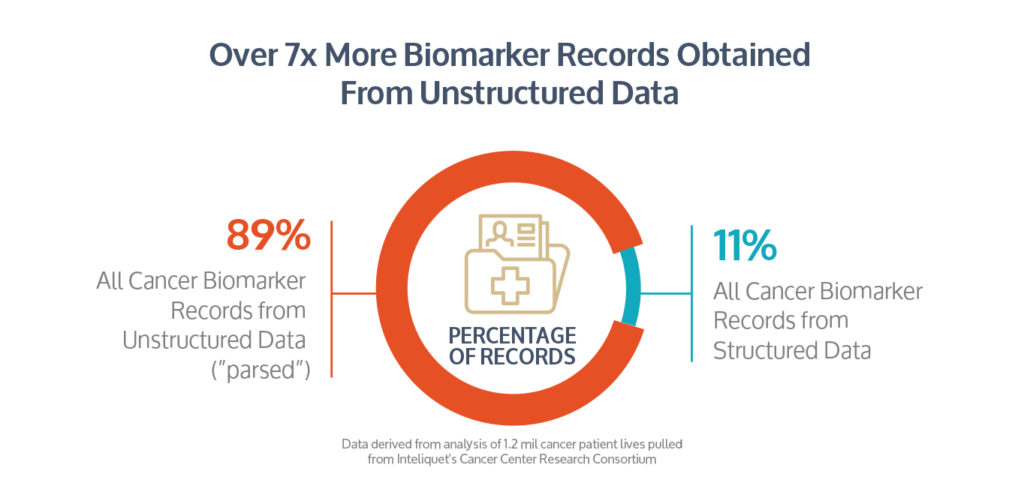BLOG
Adapting Clinical Trials to the Demands of Precision Medicine
 Precision medicine has emerged as a promising approach to healthcare, tailoring treatments to the specific genetic and environmental factors of individual patients. This paradigm shift in medical research has significant implications for the clinical trial industry.
Precision medicine has emerged as a promising approach to healthcare, tailoring treatments to the specific genetic and environmental factors of individual patients. This paradigm shift in medical research has significant implications for the clinical trial industry.
This blog recaps a webinar held recently featuring Betsy Wagner, Director of Design Analytics at IQVIA, and Joanna Hill, Director at HealthPartners Cancer Research Center, during which they explored the current status of precision medicine, its disruptive impact on clinical trials, and the challenges and opportunities it presents.
The changing landscape of clinical trials
The advancement of genetic testing has paved the way for precision medicine trials, enabling the identification and treatment of patients based on specific genetic markers. Traditional clinical trials, which focused on patients grouped by diagnosis, are being replaced by innovative trial designs such as basket trials and umbrella trials.
- Basket trials test a targeted therapy in multiple diseases that share common molecular alterations.
- Umbrella trials test multiple targeted interventions within a single disease, stratifying patients based on their molecular alteration.
These trial designs offer the potential to enhance the efficiency and effectiveness of clinical research, leading to accelerated drug development and improved treatment options for patients. However, operationalizing these kinds of trials requires a solid understanding of patient populations and of eligibility criteria.
Protocol complexity and funding challenges
Clinical research, particularly in precision medicine, has become more complex in recent years. Protocols are more intricate, with a higher number of procedures, inclusion/exclusion criteria, and significant amendments. Precision medicine trials often have smaller sample sizes and shorter timeframes. However, funding for clinical trials, particular in oncology, has not kept pace with this increased complexity, resulting in resource constraints.
Impact on patients and providers
This increased complexity has implications for both patients and healthcare providers. Identifying eligible patients becomes more challenging due to stringent eligibility criteria, which hinders enrollment. Providers need easy access to trial options so they can inform and invite their patients. The complexity also necessitates a larger portfolio of trials, making it difficult for providers to keep track of study options. Moreover, the comprehension of trial-related information, including informed consent forms, can be challenging for patients due to technical language and varying health literacy levels.
Advancing health equity through increased trial awareness
Raising awareness about clinical trials is crucial for advancing health equity and ensuring equal opportunities for patients. However, there is a lack of widespread information about studies, particularly among underrepresented communities. Language barriers, cultural differences, and unconscious biases further limit the participation of certain groups. To address these disparities, efforts should focus on providing accessible information, eliminating assumptions, increasing diversity in research populations, and fostering cultural humility among researchers.
Real-world implications and patient perspectives
While personalized medicine holds promise for targeted and effective treatments, there are some drawbacks for patients. Limited availability, high costs, potential inaccuracies or inconclusive results, privacy concerns, psychological impact, and stigmatization are factors to consider. Patients must weigh the potential benefits and risks of personalized medicine in consultation with their healthcare providers.
How to succeed
To operationalize a precision medicine trial effectively, we recommend focusing initially on the following three areas:
- Training — recognize the changing landscape and build in the necessary training.
- Consider how protocols will be implemented at your site and plan additional testing requirements for patients.
- Learn new technologies, such as NGS and genetic testing, to ensure a strong understanding of any new tests.
- Explore operational technology and tools that can assist with feasibility, screening, and data capture processes, leveraging AI and digital cross-communication.
- Communication — effective communication is crucial within your team and with external stakeholders.
- Maintain contact information for relevant parties involved in trials, such as kit vendors and medical monitors.
- Ensure that the right people within your team are easily accessible, leveraging platforms like Slack for quick communication.
- Utilize additional resources beyond coordinators and research nurses, such as genetic counselors, nurse navigators, and hospital registrars, to enhance patient understanding and increase trial participation.
- Risk Management — know the risks of precision medicine trials and develop mitigation strategies.
- Understand the therapeutic area you work in and the characteristics of your patient population.
- Stay informed as genetic and other testing becomes more commonplace and detailed, to identify suitable trial opportunities.
- Assess resource considerations, such as regulatory staff, storage needs, and logistics, and evaluate potential technology solutions to address pain points and optimize processes.
Precision medicine is reshaping the landscape of clinical trials, demanding new trial designs and increased complexity. While personalized medicine offers the potential for improved patient outcomes, it also poses challenges for patients, providers, and researchers. Addressing these challenges requires increased awareness, infrastructure support, and adopting technological tools to improve accuracy of data while decreasing inefficiencies. By embracing the opportunities and navigating the complexities, the clinical research industry can continue to drive advancements in precision medicine and deliver more targeted and effective treatments for patients.


